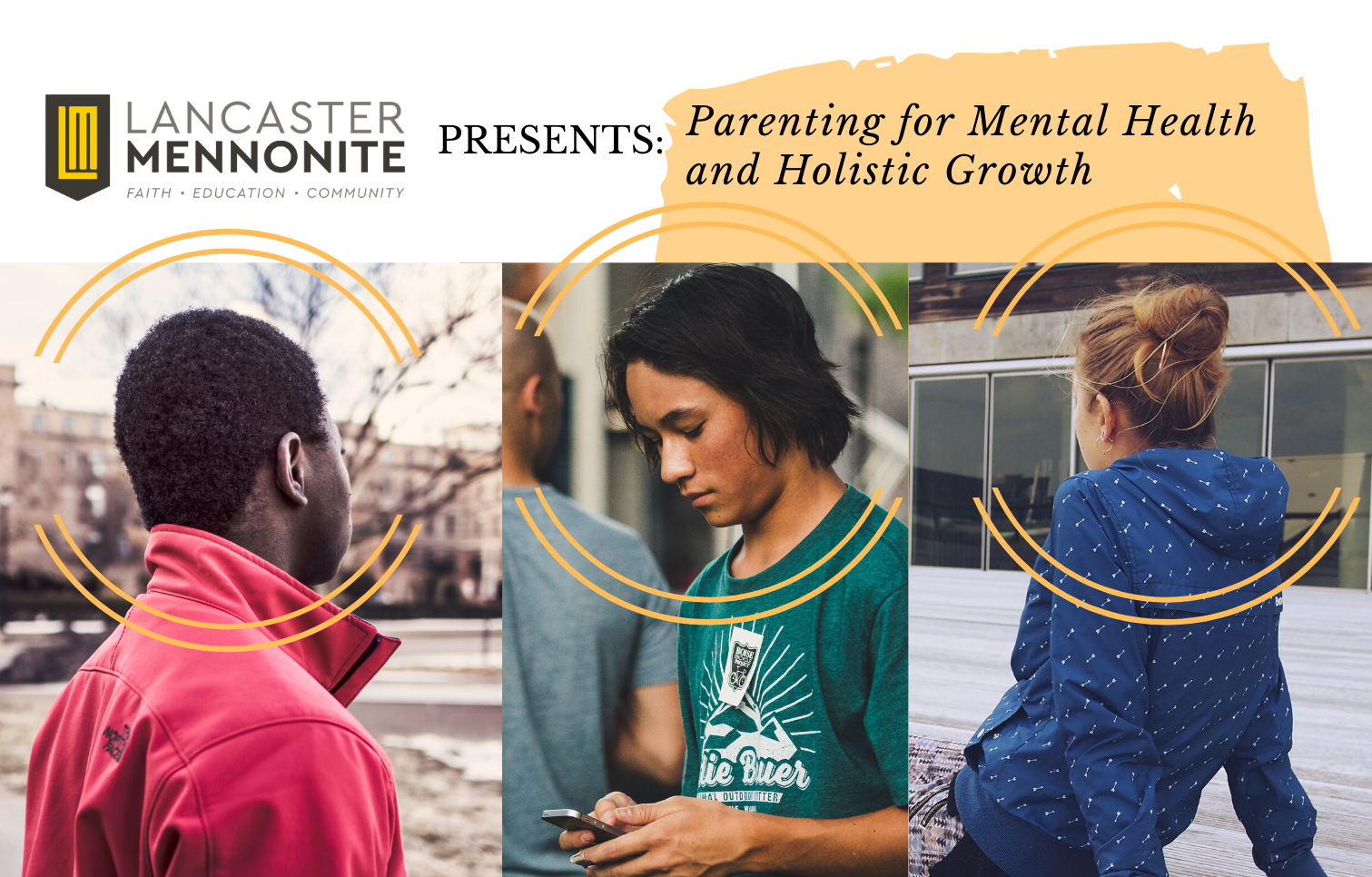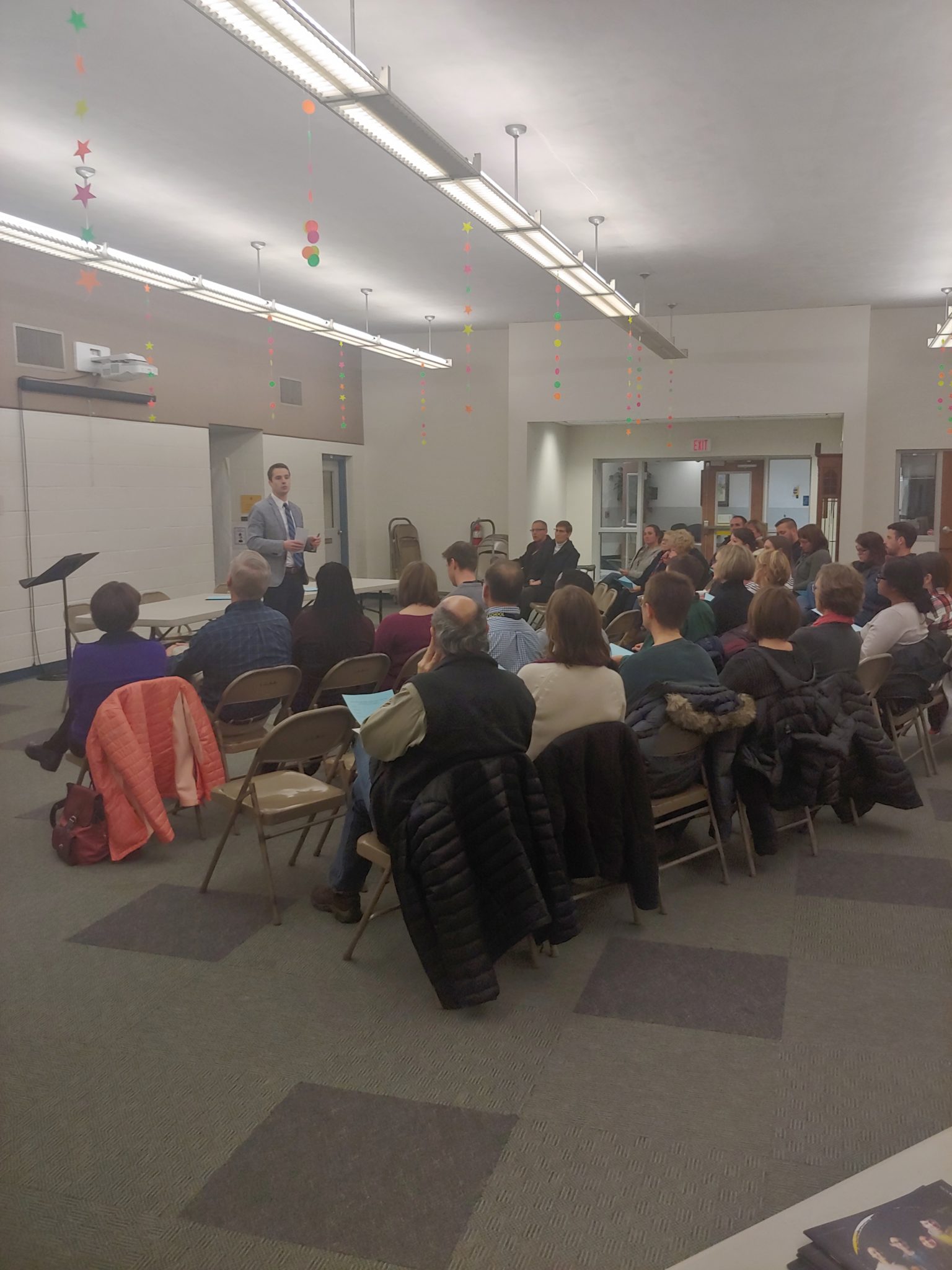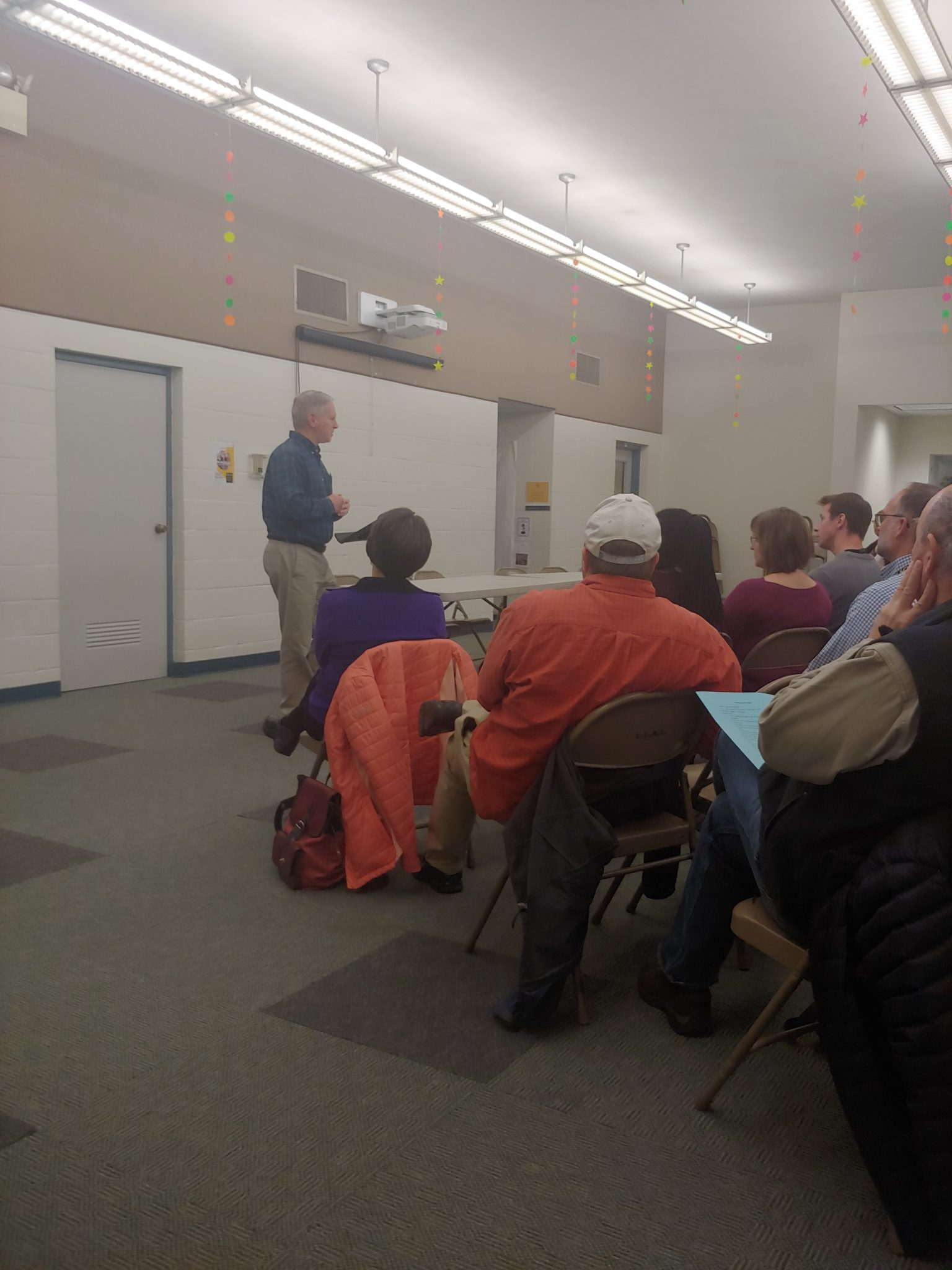Posted

On January 9th and 16th, Lancaster Mennonite held parenting seminars about student mental health and holistic growth at Locust Grove and Lancaster Campuses respectively (a New Danville seminar scheduled for January 7th was canceled due to inclement weather).
Students today are faced with a host of external pressures: to achieve, to specialize prematurely, to fit in, to stand out, FOMO (Fear Of Missing Out). These factors have contributed to a student experience that is often filled with activity but void of joy, noted by the drastic increase of anxiety and depression among adolescents in recent years. As parents and educators, how can we cultivate a climate of mental health and holistic growth for our students to flourish in a competitive world? This topic was explored during the parenting seminars, along with specific factors that are contributing to increased anxiety and depression.
Seminars featured three components in the format:
- A keynote presentation from Dr. Doug Friesen – clinical psychologist, LM parent, and former pastor
- A Q&A session with a panel of mental health professionals, educators and counselors
- A table group conversation among seminar attendees
Keynote Presentation Overview
Dr. Friesen’s presentation emphasized the need for parents to build strong, caring relationships with their children, laying the foundation for their mental health and resilience. The preferred parenting model is one of a shepherd, not sheepdog, said Friesen. The shepherd is one who sees, supports, cares for, and gently guides, while the sheepdog is primarily concerned with behavioral correction, a pattern that tends to harm the relationship over time. Prioritizing connection over correction, or relationship over rules, said Friesen, builds a sense of security and trust that helps children navigate social and academic challenges in constructive, growth-minded ways. “Do you spend time simply delighting in your children?” he asked. Many of Friesen’s parenting recommendations align closely with LM’s educational approach of community building and restorative practices, found in our 15 Faith Practice Statements.
Q&A Expert Panel Takeaways
In addition to Dr. Friesen, panelists at the Locust Grove event included: John Yonker, Locust Grove Guidance Counselor, Anne Kauffman Weaver, Chaplain, Charlene Anderson, Locust Grove Health and PE Teacher, and Maria Bowman, Parenting Instructor and Mennonite Children’s Choir of Lancaster Director. At the Lancaster Campus event, in addition to Dr. Friesen, panelists included: Herb Landis, Psychotherapist, Erin Hill, LM Guidance Counselor, and Maria Bowman, Parenting Coach.
Mental health themes addressed by panelists included the following:
- Current trends in mental health among students
- Seeking balance in involvements and scheduling
- Technology and social media
- Attitudes about performance and achievement
- Growth v. fixed mindsets
Technology, the topic of last year’s parenting seminar, was again a central focal point in this seminar. One challenge, panelists noted, is that students need space and breaks from their relationships and from school. The omnipresence of social media and smartphones invades that space, making it harder for students to find times of rest, renewal, and perspective.
Panelists suggested that parents must model the social and emotional habits and behavior that they want their children to exhibit. One panelist said that the guidelines their family establishes around technology use, which are arrived at through collective discussion and processing, apply to the parents too, not only their children.
When to seek extra help?
Extra help should be sought for students when key indicators become evident, including:
- Persistent changes in mood, eating or sleeping patterns
- Reduced desire to engage in activities they once enjoyed
At Lancaster Mennonite, a mental health screening is administered to all 7th and 11th graders each year to identify students who may benefit from additional support. However, at any time, our students and parents can reach out to their Guidance Counselors with questions or concerns.
Conclusion
While this is a very difficult subject to discuss, it was important to engage in it as a school community and provide families the tools and resources to help their children.
If there are other topics you think LM should discuss or have a parent seminar on in the future, please share your ideas with us anytime.


